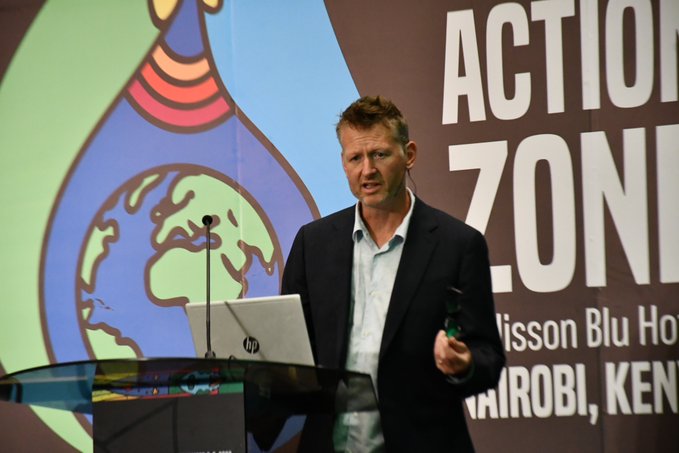
By Mary Mwendwa
Nairobi, Kenya: A report on climate misinformation was today launched during the Climate Action Zone side event in Nairobi. The study has revealed that Climate misinformation has virtually ceased to exist in the worldwide mainstream print and online media.
The study which was conducted by the Alliance for Science analysed more than 300,000 climate-related news stories over a six-month period.
“Climate denialism is dead as a news media phenomenon,” said study lead author Mark Lynas at a media event to mark the release of the new findings at the Climate Action Zone, a side event of the ongoing Africa Climate Summit in Nairobi, Kenya.
Mr Lynas is an author of several climate books and head of research at the Alliance for Science. The launch is hosted by the Africa Science Media Centre, part of the global SMC network which helps scientists connect with media worldwide.

Lynas also pointed out that 99.98 percent of analyzed media coverage did not contradict the scientific consensus on the reality and seriousness of human-caused climate change, a figure which nearly exactly parallels the 99.6 percent consensus that he found as lead author of a recent comprehensive study of the peer-reviewed literature on climate change.
“The consensus is well over 99 percent in both the scientific literature and the world’s media,” Lynas said, adding that “the debate about whether climate change is real is well and truly over, and is now almost entirely relegated to the lunatic fringe and, of course, social media. The era of false balance, where you used to have a scientist always balanced with a climate denier in news stories, is definitively over.”
In order to estimate the proportion of climate misinformation in the world’s press, the study analyzed six false climate-skeptic themes that emerged on social media and examined their ‘breakout’ occurrence rates in wide-circulation global news stories. It found only 59 articles containing unchallenged misinformation on these themes in 321,553 climate-related articles, a misinformation rate of just 0.02 percent.
However, because of the enormous volume of media coverage on climate change, even this small 0.02 percent proportion was estimated to have a reach of 4.4 billion. The majority of this misinformation was carried on mainstream outlets like Yahoo! and MSN via PR distribution networks, as well as right-wing and conspiracist media such as Epoch Times.
Only two of the six themes received significant breakout coverage in mainstream news. The first was related to a ‘World Climate Declaration’ supposedly signed by 1,500 scientists, which claims that the current warming may be partly ‘natural’, that it is ‘far slower than predicted’, that models are ‘inadequate’ and that CO2 is ‘plant food’ and therefore ‘not a pollutant’. (All these claims have been debunked, and the signatory list contains almost no actively-publishing climate scientists.)
The second misinformation theme related to the claim that the ongoing climate emergency is ‘fake’ because warming so far has been “mild” and that “life on Earth thrived (and was far greener) when CO2 levels were at least 5X higher than today’s”. This has been promulgated by pro-fossil fuels advocates. The other four themes, variously claiming that Greenland is not losing ice and that wind turbines are toxic, achieved negligible coverage.
“Our findings are good news for the world leaders currently attending the Africa Climate Summit here in Nairobi,” commented Alliance for Science director Dr Sheila Ochugboju. “We show that the media conversation on climate change has now clearly moved on from denialist talking points.”
But, she cautioned: “This is only the beginning. Overt climate misinformation may be relegated to the margins but the power of the fossil fuels lobby means that things have shifted from denial to delay. We need rapid action to rescue the 1.5-degree Paris target and to ensure sufficient funding for climate resilience and growth in vulnerable regions like sub-Saharan Africa.”
At the Nairobi climate summit, the Alliance for Science is hosting several parallel events in a Climate Action Zone focusing on food security, climate resilience, and combating anti-science misinformation.
To download a copy of the report, ‘Climate misinformation in the media, visit allianceforscience.org/research













